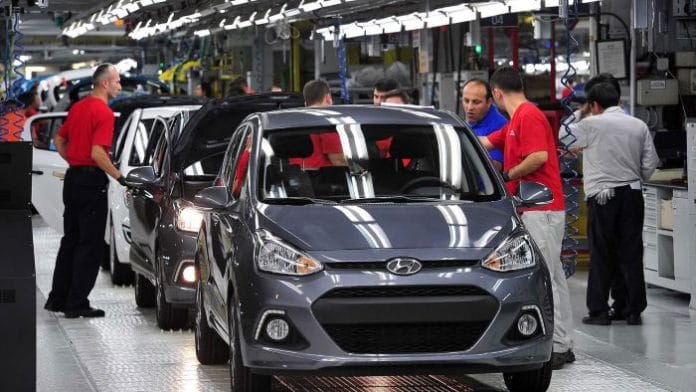Kenanga Investment Bank (Kenanga) projects industry-wide sales volume, also known as the total industry volume (TIV), to contract by 11% to 710k units in CY24, which is a tad more conservative than 740k units projected by Malaysia Automotive Association (MAA), for the Malaysian automotive sector.
Kenanga believes while it will be business as usual for the affordable segment, fuel subsidy rationalisation will likely hurt the demand for mid-market models, giving rise to a two-speed automotive market locally in CY24. In general, the industry’s earnings visibility is still good, backed by a booking backlog of 200k units.
Kenanga maintains a NEUTRAL call on the sector.
Kenanga’s sector top pick is MBMR (OP; TP: RM5.80), which is a good proxy to the affordable and fuel-efficient Perodua brand. It also offers an attractive dividend yield of about 9%.
Business as usual for the affordable segment. For CY24, Kenanga projects a TIV of 710k units (-11%) which they believe the impending fuel subsidy rationalisation is likely to hurt the demand for mid-market models, giving rise to a two-speed automotive market locally in CY24.
Kenanga believes a new car is still an affordable luxury for most Malaysian households despite the high inflation and a slowing global economy underpinned by: (i) strong consumer confidence supported by a stable economy and a healthy job market, (ii) the affordability of motor vehicle underpinned by stable new car prices thanks to the deferment of new excise duty regulations (that could have resulted in prices of locally assembled vehicles increasing by 8%−20%) and potentially cheaper hire purchase cost with the introduction of the reducing balance method in the calculation of interest charges, and (iii) attractive new models.
Kenanga believes it will be business as usual for the affordable segment as its target customers, i.e. the B40 group, will be spared the impact of the impending fuel subsidy rationalisation and also could potentially benefit from the introduction of the progressive wage model.
However, the same cannot be said for the mid-market segment as its target customers, i.e. the M40 group may hold back from buying a new car (or even down trade to a smaller car to cut their fuel bills) upon the introduction of fuel subsidy rationalisation.
In general, the industry’s earnings visibility is still good, backed by a booking backlog of 200k units as at end-Feb 2024.
More than half of the backlog is made up of new models, alluding to how appealing new models are to car buyers.
This trend is likely to persist throughout CY24 given a strong line-up of new launches. Meanwhile, excitement is building in the electric vehicle (EV) segment with the new launches of BYD Seal and Tesla Model 3 Highland with expected introduction of locally-made first national EV (i.e. Perodua and Proton) in CY25.
Perusahaan Otomobil Kedua Sdn Bhd, the maker of the affordable and fuel-efficient Perodua vehicles, will be running at full capacity in CY24 to fulfil in a huge booking backlog of 120k units, which is equivalent to almost half its CY24 sales target of 340k units.
As such, based on Kenanga’s estimates, Perodua is poised to expand its market share to 48% (from 41% in CY23).
Attractive new models. Perodua and Proton models have been well received by the market. Apart from cheaper pricing against the non-national brands, they also offer improved technological features (i.e. digital speedometer, fuel-efficient engine and a highly-responsive gearbox) and safety features (i.e. advanced driver assistance systems (ADAS) and 4-to-6 airbags).
In terms of new model, Perodua is putting onto the market Perodua D66b (with a tentative launch date in Apr 2024) which is built on the latest Daihatsu New Global Architecture (DNGA) platform.
It will give the B-segment offerings of its competitors a run for their money including Proton X-50, Honda City Hatchback and Toyota Yaris Cross (with a tentative launch date also in Apr 2024).
On the other hand, Proton are looking to launch Proton X70 facelift MC2, Proton X50 facelift MC1, Proton Saga, Persona, Iriz 2024 MC version, and tentatively Smart #3 all within CY24.
Most of the Proton upcoming launches will be face-lifted variants of existing models, following the introduction of new models Proton X90 (its first MHEV model) and Proton S70 (C-segment sedan at the price of non-nationals B-segment) in CY23.
In the space of non-national brands, automakers are shifting away from the highly competitive low-margin segment such as 7-seater SUVs and focus on premium products that will appeal to the middle-income group such as those offered by BAUTO (MP; TP: RM2.30).
Honda, for instance, replaced its 7-seater variant of Honda BR-V with WR-V (small 5-seater SUV) which is the brand’s current best-selling car.
More battery electric vehicles (BEVs) in the market. Additionally, vehicle sales will be supported by new BEVs that enjoy SST exemption and other EV facilities incentives up to CY25 for CBU and CY27 for CKD. BEV new registrations have leapt from 274 units in CY21 to over 3,400 units in CY22 and 10,159 units in CY23 and are on track to meet national target for EVs and hybrid vehicles of 15% of total industry volume (TIV) by CY30, and 38% of TIV by CY40.
Meanwhile, the government’s pledge to enable charge point operators (CPOs) to secure faster approvals for installation provides comfort as currently only 2,020 EV charging stations have been built to-date.
Kenanga’s sector top pick is MBMR for: (i) its strong earnings visibility backed by an order backlog of Perodua vehicles of 120k units (almost half of its CY24 target sales of 340k units), (ii) being a good proxy to the mass-market Perodua brand given that it is the largest dealer of Perodua vehicles in Malaysia, as well as its 23% stake in Perusahaan Otomobil Kedua Sdn Bhd, the producer of Perodua vehicles, and (iii) its attractive dividend yield of about 9%.









